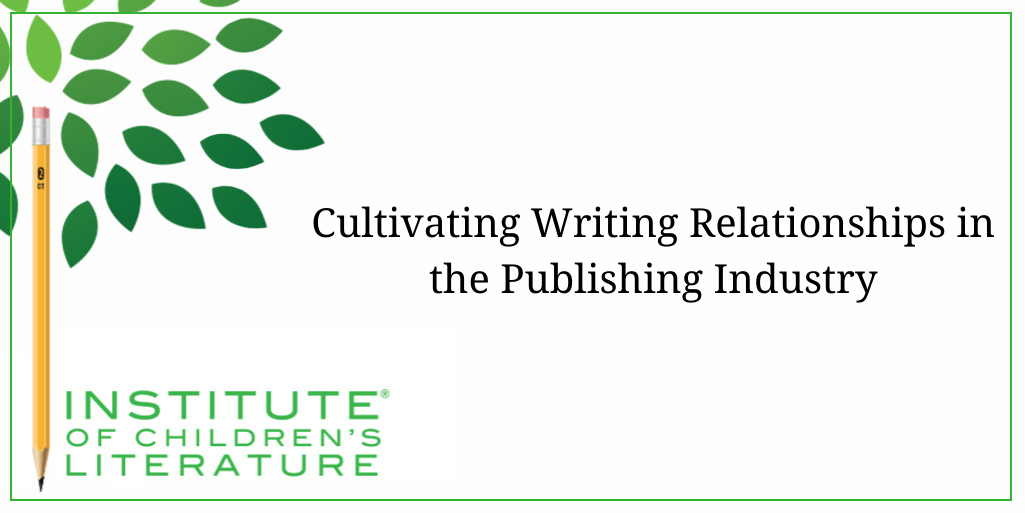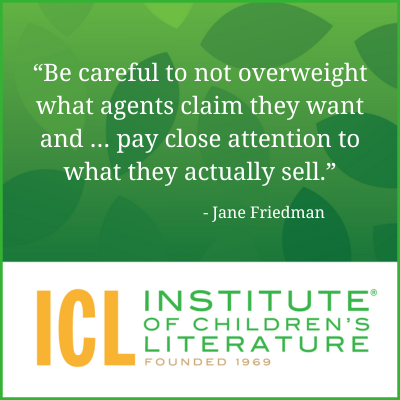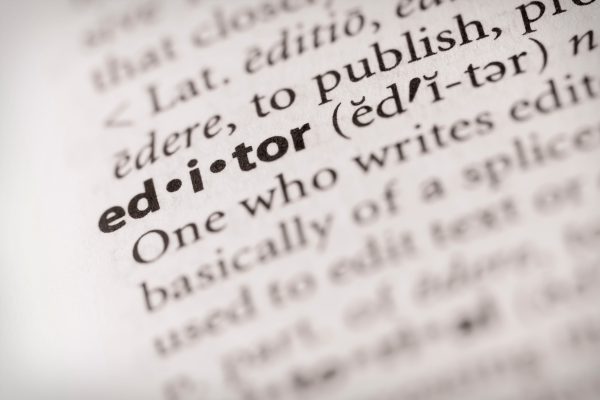
5 Ways Writers Can Prep for 2025 Goal Setting
Before we roll on to the new writing year, let’s harness our optimism for the blank slate before us and prepare for our 2025 Goal Setting just for writers.

Writers do most of their work alone. Though there is a rich history of collaborative writing teams creating books, the actual writing part is often accomplished by authors alone tapping away at a keyboard or scribbling on paper. It’s a solitary occupation, but that doesn’t mean books are the result of purely solitary activity. Writers collect relationships in the business and these relationships all have their own rules and their own value to contribute to a writer’s success.

As a result, I’ve come to know agents (though I don’t have one), editors (sometimes at publishers I’ll never work with because they publish things I don’t write), writers (because different writing stories are fascinating), and readers (because when you write, you’ll eventually get mail from readers—which never stops being cool.) And I have come to recognize that these relationships sometimes surprise me.
Honestly, one of the most misunderstood groups in publishing is agents. Writers often don’t see what they’re doing since they are in a “middle-man” position that is fairly invisible unless you have an agent who tells you every single thing. And even the ones that share a lot will be doing things you don’t know about. As a result, people can be confused about agents, and sometimes downright hostile if they think the agent isn’t doing enough for them. But agents are just people trying to do a job in an increasingly difficult field. There are good agents and bad agents and scammy people pretending to be agents, but they are all people (even if the scammy ones are really bad people). So try to think of them as people first.

This is why it does you no good to get your Aunt Matilda to pretend to be your agent. If she has no contacts in the industry who trust her professionalism, she is going to be ignored.
The connections thing also means most agents have specialties based both on what they like to read (and thus what they are skilled at evaluating) and what their connections are buying. This is one reason a really good agent might pass on a well-written project if the agent doesn’t have the connections to sell that project. Rejection isn’t necessarily a value judgment. It merely means that the agent wouldn’t be able to sell that manuscript.
If you want to know what agents are good at selling, it helps to know who they are representing. They will represent people that they have the connections to sell well. You can find a “who reps whom” list at Query Tracker that can help you find an agent who might be a good fit for you. Keep in mind that an agent won’t take on a writer who is too much like someone they already represent, as they don’t want their clients competing with one another. But if you look across their list of clients, you can get a feel for the sort of books they like and have the connections to represent.
An agent relationship is professional. It can be warm and friendly, but you need to keep in mind that it is also professional. When you have an agent, you are working with that person for the success of your project, but they are also working with a number of other writers. And they only have so much time. So they may not respond to emails promptly and may be happier if interaction has a professional element (meaning, they may not have time for chit-chat). Good agents respond slowly sometimes not because they don’t care, but because being a good agent is a time-intensive job and they’re juggling a lot. Patience is more than a virtue when dealing with agents, it’s a requirement for your happiness and theirs.
Because I ask nosy questions of every single publishing professional I come in contact with (it’s that insatiable curiosity thing), I have a fairly wide pool of relationships at publishing houses. Some work at publishing houses I will never submit to or work with. I simply like to know everything. It’s a sickness, I tell you. But it does mean that when I do submit something or connect with a publisher with the intention of working with them, I often get responses suggesting people have heard of me (and since they’re being nice, I assume they haven’t heard bad things.) That’s always edifying. I’ve also worked with people that didn’t know me at all and that works too. But I do like thinking of myself as a big deal. Sigh.

Because editors are buffers, they catch a lot of grief. So, my first tip is always: don’t be one of the people piling on grief. A reputation for kindness is endlessly useful in this industry. Think of it this way, if an editor is choosing between two equally good manuscripts that fit their line and one comes from a writer with a reputation for being patient and gracious, who would you pick?
Communicating with editors varies widely. I’ve had editors who are extremely chatting and wanted to tell me about their pets and the weather around them. And I’ve had editors who were all business to the point of being almost abrupt. I can adjust to any of it, and I don’t take offense at abrupt communication because I never forget that (1) the editor is juggling a lot of work and (2) so am I. I also try to slow down to respond to chatting editors with something warm and friendly, because if I can’t make time for people, why am I doing this job? In other words, you’ll do a lot of adjusting to different personalities if you keep writing. Guard your reputation as a writer who is easy to work with.
That doesn’t mean I never bring up problems. In fact, I bring up problems quickly, clearly, and without anger. As I said, editors are your buffer. They know they must deal with the problems you encounter. As long as you stay pleasant and professional, so will your editor. Problems can range from not getting the proofs you were promised to needing to ask for an extension on a deadline. Problems happen. The key is how you deal with them. Deal with them well, and that editor will build your reputation when they talk about you.
Recently I saw Neil Gaiman’s post about the part other writers have played in his work: “Everything good that happened in my writing career happened because someone, normally another writer, helped me. Suggested me for something, put in a good word, and so on.” His words aren’t a surprise. I’ve gotten work because other writers threw my name in the ring when an editor wanted more authors on a project. I’ve also gotten work when friends emailed me to say they heard about an opportunity that made them think of me.
Your fellow writers can easily be the most important relationships you make in this business. This is something new writers often overlook. If you attend writing conferences, you’ll often see newer writers flock to presentations by editors and agents. They see these are the “big opportunities” of the conference. The reality is that most of the time, connections of that sort don’t end up producing a contract for you (sometimes they do, but not as often as folks hope). But chatting with your fellow writers, talking about what you each write, and generally being friendly can lead to surprising payoffs.

I’ve also been published many times through direct submissions and approaching publishers directly for commissions. This is not a business where connections are everything. But it is a business where connections are something. Something truly helpful.
Never overlook the chance to connect with other writers. Join writing groups online. Check out whether there are in-person writing groups in your area. Chat with fellow writers at conferences and workshops. Value writer connections every bit as much as you value editor and agent connections. Don’t overlook a chance to do a good deed for others. I cannot always take on writing jobs I’m offered, but I can almost always think of another writer who would be perfect. So, give as good as you get. We’re all in this together, so do what you can to be a help and a friend. We can all use one now and then.
If you stay in this business for any length of time, you’re going to get mail (or email) from readers. Some of it will be fake. That’s crappy, but people do contact writers to try to get free books. And those people often haven’t read anything you’ve written. But you’ll also be contacted by real readers.

That doesn’t mean everything readers say will build you up. I have come across discussion boards where readers were less than complimentary about my work. Ouch. I don’t get on those and defend myself (even when the problem is a misreading.) There is no net positive from being one of “those” writers who argue with people on discussion boards. Instead, I pay attention to see if there is anything I can learn from the comments. Then I move on. You can’t please everyone. There are books I strongly dislike that are massively popular and beloved. Obviously, I think I’m right, but it really doesn’t matter. I didn’t like it. Other people did. We both have valid responses. Liking and disliking are subjective, and everyone gets to feel whatever they feel. And talk about it if they want.
For a person who is as much of a lover of solitude as me, the myriad relationships that come with this business can sometimes be positively overwhelming. But they all serve to help us connect better, write better, and serve the reader better. So the more connections, the merrier.
With over 100 books in publication, Jan Fields writes both chapter books for children and mystery novels for adults. She’s also known for a variety of experiences teaching writing, from one session SCBWI events to lengthier Highlights Foundation workshops to these blog posts for the Institute of Children’s Literature. As a former ICL instructor, Jan enjoys equipping writers for success in whatever way she can.

Before we roll on to the new writing year, let’s harness our optimism for the blank slate before us and prepare for our 2025 Goal Setting just for writers.

Writers can be thin-skinned when it comes to getting feedback on their work. Let’s look at 4 ways to positively deal with constructive criticism!

Rejection is part of the territory when it comes to being a writer. Today we offer reflection for writers to help redirect your efforts after a rejection.
1000 N. West Street #1200, Wilmington, DE 19801
© 2024 Direct Learning Systems, Inc. All rights reserved.
1000 N. West Street #1200, Wilmington, DE 19801
© 2024 Direct Learning Systems, Inc. All rights reserved.
1000 N. West Street #1200, Wilmington, DE 19801
© 2024 Direct Learning Systems, Inc. All rights reserved.
1000 N. West Street #1200, Wilmington, DE 19801
© 2025 Direct Learning Systems, Inc. All rights reserved.
1000 N. West Street #1200, Wilmington, DE 19801
©2025 Direct Learning Systems, Inc. All rights reserved. Privacy Policy.
4 Comments
Excellent! Thank you!